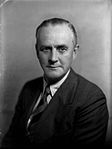
Back যুক্তরাজ্যের সাধারণ নির্বাচন, ১৯৫০ Bengali/Bangla Eleccions al Parlament del Regne Unit de 1950 Catalan Parlamentsvalget i Storbritannien 1950 Danish Britische Unterhauswahl 1950 German Γενικές Εκλογές του Ηνωμένου Βασιλείου 1950 Greek Elecciones generales del Reino Unido de 1950 Spanish Yhdistyneen kuningaskunnan parlamenttivaalit 1950 Finnish Élections générales britanniques de 1950 French הבחירות הכלליות בבריטניה 1950 HE Elezioni generali nel Regno Unito del 1950 Italian
| |||||||||||||||||||||||||||||||||||||||||||||||||
All 625 seats in the House of Commons 313 seats needed for a majority | |||||||||||||||||||||||||||||||||||||||||||||||||
|---|---|---|---|---|---|---|---|---|---|---|---|---|---|---|---|---|---|---|---|---|---|---|---|---|---|---|---|---|---|---|---|---|---|---|---|---|---|---|---|---|---|---|---|---|---|---|---|---|---|
| Opinion polls | |||||||||||||||||||||||||||||||||||||||||||||||||
| Turnout | 83.9% ( | ||||||||||||||||||||||||||||||||||||||||||||||||
| |||||||||||||||||||||||||||||||||||||||||||||||||
 Colours denote the winning party | |||||||||||||||||||||||||||||||||||||||||||||||||
 Composition of the House of Commons after the election | |||||||||||||||||||||||||||||||||||||||||||||||||
| |||||||||||||||||||||||||||||||||||||||||||||||||
The 1950 United Kingdom general election was the first to be held after a full term of a majority Labour government. The general election was held on Thursday 23 February 1950, and was also the first to be held following the abolition of plural voting and university constituencies. The government's lead over the Conservative Party shrank dramatically, and Labour was returned to power but with an overall majority significantly reduced from 146 to just 5. There was a 2.8% national swing towards the Conservatives, who gained 90 seats. Labour called another general election the following year, which the Conservative Party won, returning Churchill to government after six years in opposition.
Turnout increased to 83.9%, the highest turnout in a UK general election under universal suffrage,[1] and representing an increase of more than 11% in comparison to 1945.
It was also the first general election to be covered on television, although no recording was made of the live broadcast, which was the standard practice at the time. Richard Dimbleby hosted the BBC coverage of the election, which he would later do again for the 1951, 1955, 1959 and the 1964 general elections. On this occasion, Dimbleby was joined in the BBC Alexandra Palace studios by R. B. McCallum, Fellow of Pembroke College, Oxford, and author of The British General Election of 1945, and David Butler, research student of Nuffield College. The first election night programme ran from 10:45 pm until just after 1:00 am.[2]
Cite error: There are <ref group=lower-alpha> tags or {{efn}} templates on this page, but the references will not show without a {{reflist|group=lower-alpha}} template or {{notelist}} template (see the help page).
Cite error: There are <ref group=note> tags on this page, but the references will not show without a {{reflist|group=note}} template (see the help page).
- ^ Parliamentary Government in Britain, Holmes & Meier Publishers, 1981, page 104
- ^ "General Election Results", The Radio Times (1375): 47, 17 February 1950, retrieved 27 March 2018 – via BBC Genome


